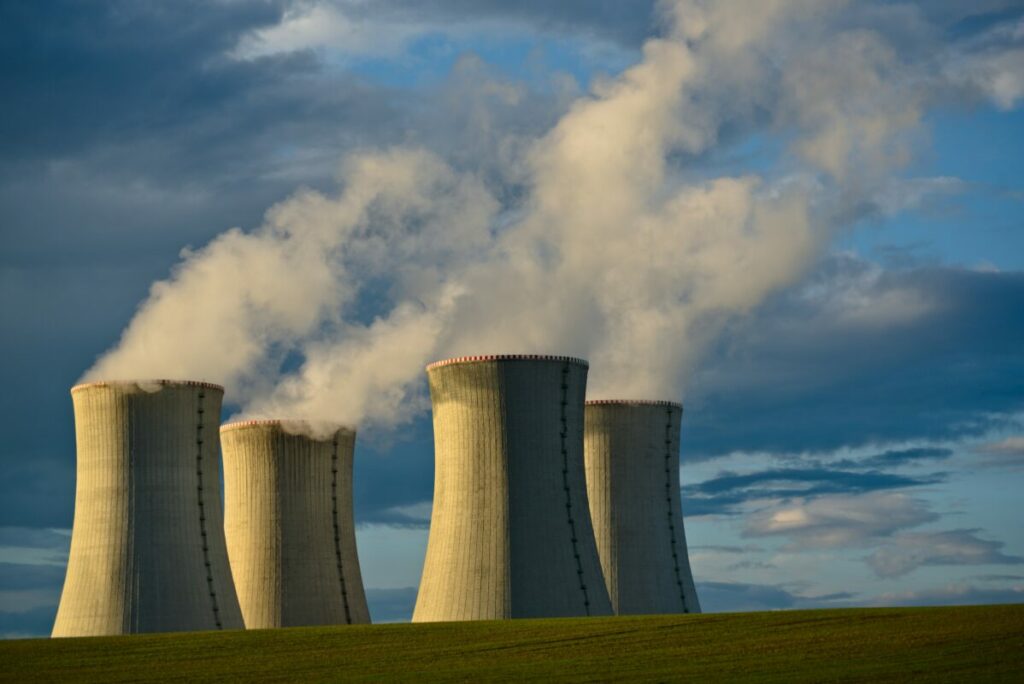Government trade body Great British Nuclear (GBN) has launched today (18 July) alongside a new competition to support the development of small modular reactors (SMRs).
The competition will support the development of SMR technology – advanced nuclear reactors that have a power capacity of up to 300MW per unit. The technology is much smaller than conventional nuclear reactors and thus are cheaper to create and crucially, can be constructed much faster.
The government confirmed that this staged competition is designed to attract the best designs from both domestic and international vendors with the government set to select leading technologies to bring forward into demonstration stages by the end of the year.
The UK Government also emphasised the importance of SMR technology in achieving its ambition of having 24GW of nuclear energy operational by 2050.
“Britain has a rich history as a pioneer of nuclear power, having launched the era of civil nuclear power – and I’m proud to be turbocharging its revival and placing our country once again at the forefront of global innovation,” said Energy Security Secretary Grant Shapps.
“By rapidly boosting our homegrown supply of nuclear and other clean, reliable, and abundant energy, we will drive down bills for British homes and make sure the UK is never held to energy ransom by tyrants like Putin.
“Today as we open GBN and the competition to develop cutting-edge small modular reactor technology, which could result in billions of pounds of public and private sector investment, we are seeing the first brush strokes of our nuclear power renaissance to power up Britain and grow our economy for decades to come.”
The UK’s nuclear renaissance is underway 🇬🇧
— Department for Energy Security and Net Zero (@energygovuk) July 18, 2023
Great British Nuclear will drive forward clean, reliable nuclear energy projects for generations to come.
Boosting energy security, supporting high-skilled jobs and growing the economy.
Find out more: https://t.co/6TJqjbXrHM pic.twitter.com/jISYebRsG7
The UK Government also announced £157 million in grants to bolster the development of nuclear projects across the country.
Of the £157 million financial package, £77.1 million has been allocated to accelerate advanced nuclear business development. £58 million has been assigned to further the development of advanced modular reactors (AMRs) and next generation fuels such as hydrogen.
Hydrogen produced by nuclear is commonly referred to as “pink hydrogen”.
Ultra Safe Nuclear Corporation UK has been awarded up to £22.5 million to further develop the design of a high temperature micro modular reactor, a type of AMR suited to hydrogen and sustainable aviation fuel (SAF) production.
£15 million has been given to the National Nuclear laboratory (Warrington) to accelerate the design of a high temperature reactors and up to £16 million has been awarded to National Nuclear Laboratory (Preston) to continue the development of sovereign coated particle fuel capability.
Eight projects have also benefitted from a further £22.3 million which will enable the development of new fuel production and manufacturing capabilities in the UK.
“GBN is core to delivering the government’s new nuclear programme,” said Simon Bowen, interim chair of Great British Nuclear.
“Building on the work done at Hinkley Point and Sizewell, today’s announcement of the start of the SMR selection process signifies a real step forward in delivering the scale of nuclear power that Britain needs for secure, sustainable energy future.
“We look forward to working with all interested parties – technology vendors, the supply chain, the wider industry and local communities as we move this essential programme forward.”
Current± reported in late March that the UK Government’s Spring Budget 2023 package included the creation of GBN to help address constraints in the market and support the development of nuclear projects in the UK.
But despite the creation of GBN being regarded as a triumph for the UK Government, many within the energy industry have questioned whether this increased investment could hinder the support for other “proven” renewable technologies such as wind and solar.
Touching on this topic, Jess Ralston, head of energy at the Energy and Climate Intelligence Unit (ECIU) said: “A number of experts, including the Climate Change Committee, see a role for nuclear in removing gas from our power system, but with SMRs yet to be deployed and larger plants like Hinkley over-budget and delayed, it’s difficult to predict exactly what the costs and timescales might be for future endeavours. The Office for Budget Responsibility has said the high upfront costs of nuclear could leave us with a £170 billion bill.
“Despite slight cost increases given current inflation levels, British renewables will remain much cheaper than both gas and nuclear. There are questions over whether government has taken its eye off the ball for the current Contracts for Difference (CfD) auction round for wind farms, imposing too tight restrictions and so limiting the projects that might get built.
“Where government places its focus is important for green investment from businesses, and clearly rapidly building out renewables is the best deal for the UK tax or billpayer.”






